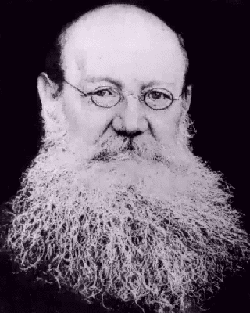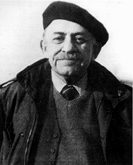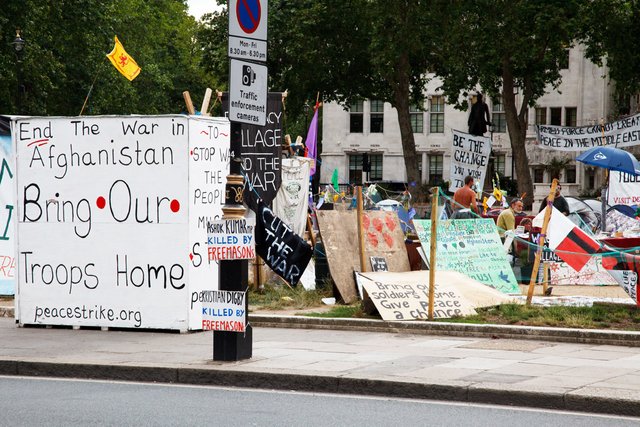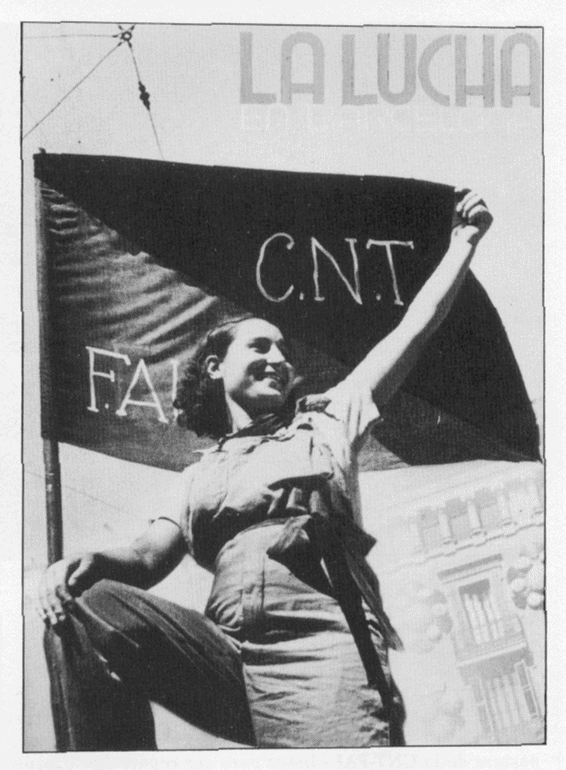Beyond Utopianism: A Practical Agenda for Libertarian Social Democrats

I do have a utopian vision of the sort of society I would like to see. I have an outline or blueprint for anarchist social democracy. However, I am a realist. Our utopias and ideals are always just theoretical constructs. As an anarchist, I advocate participatory direct democracy, and I realize that this means that society could fashion its institutions in any number of ways, perhaps even in ways that are far better than anything I could imagine. Participatory democracy and consensus processes would encourage people to share ideas. There are probably a lot of brilliant people with ideas that are far better than mine, and I would not be disappointed at all if we arrive at something quite different than my utopia if it happens to be better or more reasonable. Nevertheless, utopias and ideal models are important for theoretical discussions. Every revolution needs a utopia as something to strive for. The revolution will not attain its utopia, but it needs that utopia as an icon, a Christ figure, to reach for and imitate to the best of its ability. The utopia gives us an orientation, a direction.
As I said, I am a realist. I don’t think that we are going to just overthrow the State and replace it with a democratic confederation overnight. I think the process will be long and difficult. And I actually do have a realistic plan for how to change the system. And I am a dialectical libertarian, so I will take whatever liberatory reforms we can get in the meantime. While looking forward to the revolution, I will still be pushing for the positive gradual changes we can implement in the interim. By all means, push for the abolition of wage-slavery, but don’t neglect to demand better working conditions and higher wages in the meantime. The utopia has its function and purpose, but this "realistic" immediate agenda is equally important.
First and foremost, I advocate the popularization of participatory democracy and consensus processes. In the immediate future, it’s unrealistic to try to implement such processes within the framework of the State. However, it is reasonable to believe that one might have a lot of success in democratizing other aspects of one’s life. For instance, a neighborhood homeowner association (HOA) could be reformed along directly democratic lines. You could easily implement a consensus process within a HOA. You might also be able to do this in your workplace. If you have influence within a union, you can try to reform the union along directly democratic lines. Most importantly, participatory democracy should be the model utilized by protest movements. Occupy Wall Street (OWS) had a model of consensus that should be adopted by local protest movements. I think it would be a good idea to form a local general assembly, utilizing a consensus decision-making process, in every community. Then use these popular assemblies as a catalyst to push political and economic reforms. It is important that these assemblies do not become political parties. They ought not to endorse candidates and such. Instead, they ought to form a platform and make a list of demands. If your local government is doing something that the people don’t like, mobilize the general assembly to take action—march down to the mayor’s office, march down to the governor’s office, occupy the lobby or front lawn and say, “We don’t like what you’ve done and we demand that you fix it and make it right!” If a corporation is doing something that might damage the health of people in your city, or if it is polluting the local environment, then march the assembly down to their main building and demand that they change their policy or fix whatever they have done wrong. This is how you educate people in the democratic process. This is how you go about “forming the structure of the new society within the shell of the old.”

I advocate a mixture of the libertarian municipalist plan and the OWS tactic. If you can form formal general assemblies, then do so. If you can get them to have some influence over municipal government, then go for it. If you can’t do that, then start some more informal popular assemblies and action groups and utilize participatory democracy within those groups. If a consensus process works, use it. If not, use some sort of qualified consensus process or other form of participatory democracy. You should try to confederate these assemblies and groups into some sort of citizens’ union that can reach a broader consensus and be mobilized on a larger scale if necessary. Ultimately, the idea is to establish a citizens’ union that can act as a “go-between” between the people and the State, or between the people and big business. The goal is to create a “dual power” scenario that weakens the power of the State and of corporations. We should attempt to build up a directly democratic citizens’ union to advocate for the rights of the people and negotiate with the government and corporations, similar to the way that a workers’ union negotiates with capital on behalf of labor.

At the same time, I’m sympathetic to Fabian socialism or social democracy. For the time being, we are living within a system of representative democracy. Although the system is rigged and generally pretty shitty, I think there is room for us to make relative victories within it. For instance, America is far better now than it was in the early days of the Industrial Revolution. Workers have better pay, better working conditions, and benefits. And these improvements were secured through the mechanism of representative democracy. However, I think we need to keep civil disobedience and protest alive. We must remember that the success of social democratic reforms was the result of socialists and anarchists protesting in the streets. It was the blood and sweat of radicals that secured you your wages, your benefits, and your decent working conditions. These things would never have been implemented through the processes of representative democracy alone. Representative democracy tends towards plutocracy, as politicians are bought by the highest bidder. The wealthy can buy politicians, so the people must scare the hell out of politicians by constant vigilance and activism. If radicals stop demonstrating in large numbers, politicians will instinctively return to licking the hands of the capitalists that funded their campaigns. Nevertheless, you should vote (especially in local elections), and support the politicians that have the best platform. But also use protest movements to make demands that go against the politicians’ own plans. Instead of settling for what the politicians put in their own platforms, we should use protest movements and popular assemblies of participatory democracy in order to force the hands of politicians and make them do what the people want.
"What about national politics? What are we to do with the Trump/Hillary shitstorm?"
I say we mobilize the masses. Community organizers ought to start mobilizing the unemployed and the homeless, creating OWS-style general assemblies, and using them as a mechanism for demanding change. Beyond that, we ought to be getting the disenfranchised and alienated folks who supported Bernie Sanders, Ron Paul, or Jill Stein and mobilize them as well. And we ought to lay out a general platform for an immediate and drastic change to the system of governance.
Here’s a brief sketch of the sort of platform that I would propose for anarchist social democrats in America:
(1) the abolition of the presidency
The office of the presidency is essentially monarchical. It is the vestigial monarchy of a half-evolved democratic system. America is supposed to have a republican system of government, which means representative democracy. Theoretically, the people are supposed to elect representatives and the representatives are supposed to form a democratic assembly in which they make decisions after thorough discussion and debate. Congress may be a very imperfect democratic assembly, but at least it is somewhat democratic. What need is there for the presidency, this tyrannical institution superimposed upon democracy? The president can declare war and issue executive decisions on a whim, bypassing the whole democratic process.
The president ought to be replaced with a prime minister, whose sole duty will be to serve as a representative of America for diplomatic purposes. They will be accountable to Congress and have no right to speak of their own accord from the office.
(2) the implementation of qualified consensus in Congress
Congress ought to be forced to adopt a new process that is consensus-oriented. In order to pass a law or make a decision, Congress ought to be required to have 70% of the vote in favor instead of just a simple majority. Furthermore, 30% of the vote should be sufficient to repeal any law. Furthermore, all laws should be established with an expiration date, to be no later than 10 years from the time of passing. If the laws are to remain in effect after the expiration date, Congress must vote on them and approve them again.
(3) tax reform and citizens’ dividend
Income tax ought to be entirely eliminated for anyone who makes less than 500,000 dollars a year. A Georgist “land value tax” ought to be implemented, so that corporations that monopolize gold mines or oil fields are required to pay high taxes for their privilege of monopolizing natural resources. Also, the “land value tax” will be used to ensure that rentiers who profit off of land speculation and rent will pay their share of the taxes that fund the infrastructure and public works that drive up the market value of their land. The land value tax ought to be set high enough to allow the government to provide all citizens with a dividend large enough to mostly eliminate the problems of homelessness and hunger.
Hopefully, this has given you some idea of the kind of activism and reforms I hope to see in the near future. Anarchism is far from mere utopian dreaming.

Some good points